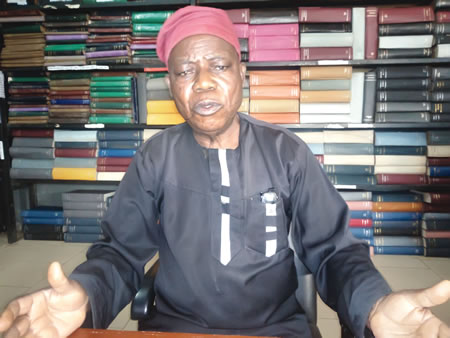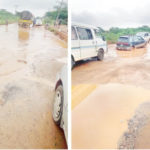M.A. Okunade is the director, Nigeria Agricultural Mission Project. In this interview by KEHINDE OYETIMI,
he speaks on the relevance of agriculture in national development.
Why did you decide to go into farming?
I am the first child of my father and my father was a cocoa farmer. I don’t have older or younger siblings; that realisation made me go into farming.
What training did you have in this regard? What schools did you attend and how were you trained?
After secondary school, I went into agriculture. I started agric business in 1957. But after graduating from high school, I sought admission. I went to the United States of America in 1977. I enrolled to study Pharmacy at Long Highland University in Brooklyn, New York, but when former President Olusegun Obasanjo came to New York as Nigeria’s Head of State, we, Nigerians, in New York and surrounding states went to welcome him. When he was addressing us, he made certain recommendations concerning our courses of choice. According to him, as Nigerians abroad, we should study courses that would be of relevance to Nigeria.
In the evening of that day, I was sitting watching my television and I saw how a tractor was working and ploughing. I had not seen any tractor working like that. I slept that night thinking of that. The next morning I asked some people where I could go to study agriculture. I later met a man, Mr Olalowo from Kwara. He said I should not go to any agricultural university in New York but to where American foods were being planted. And Iowa was number one place in the US in agriculture. I was given a contact. I called and I was invited to come. I bought my flight ticket to that area. Before the plane landed the plantation looked like a rug from the plane; it was very beautiful. I later saw it was a maize plantation. My host advised me on what to do to get to Iowa State; then he invited me and said he would introduce me to a university.
After my graduation, I came back to Nigeria. I wrote to the Federal Ministry of Agriculture and they told me that I would be contacted when there was available farm or land. They took me to Ibadan and that was through one Mr Akinpelu. I approached the International Bank for West Africa. They told me the maximum they could give a private farmer was N50,000 in 1981. A tractor that time was N11,000. I was told to shop for all I needed and bring the invoice. I totalled everything: tractor, sprayer, and others, and it amounted to N32,000. They gave me a cheque of N32,000. I asked for the remaining N18,000; they said that it would be the contributory quota. That’s how they ruined the business from the beginning. The government gave the clearing of the farm for free, 580 hectares, so when we had to start the season’s work, we couldn’t start in February or March or plough in April, and if you don’t plant in April or May, the rain would destroy whatever you had done. I had to use the tractor to clear farms and neighborhood lands to get funds for my farm.
Nigeria’s population has skyrocketed now and there has been repeated call for people to go into agriculture but there are immediate problems. We have the problem of desertification, leading to herdsmen bringing down their people, and there has been clashes and reported cases of bloody clashes between herdsmen and farmers and there are fears that we may likely have food shortage. If you had direct access to the Federal Government, how these problems be addressed?
I think it’s a sin to be rearing animals without planting what the animals would eat. It is a sin. In the US, it’s not like that; they even feed their cattle with maize. So, that is what I have prepared to encourage the Federal Government. The government should prepare demonstration farms at each geopolitical zone which I’m ready to advise or be a part of the operation if they will allow. Is it not a shame that Nigeria still imports poultry maize when Africa is one of the best climates suitable for maize?
If they set up these demonstration farms, how do you think they should be run, what are their objectives, intentions?
Their objective is to open the eyes of Nigerians to modern agricultural implementation. In 2006, I read in the Tribune that N460 billion was assigned for agriculture. What did they do with it? They don’t know what to do. They established silos in every state about five or six silos bound together without any grains in these silos. But with this demonstration farms, I promise to advise, supervise, and see that things start.
How do you think the government can make agriculture attractive to the younger generation?
They should do as the developed countries, Developed countries don’t leave agriculture to farmers alone. When I was in Israel ,in their plantain plantation, they had flowers and they put polythene on those flowers till everything would be developed; they protected it with those flowers. Then I saw pepper plantation too, five hectares of farm. Government subsidizes farming over there.
WATCH TOP VIDEOS FROM NIGERIAN TRIBUNE TV
- Let’s Talk About SELF-AWARENESS
- Is Your Confidence Mistaken for Pride? Let’s talk about it
- Is Etiquette About Perfection…Or Just Not Being Rude?
- Top Psychologist Reveal 3 Signs You’re Struggling With Imposter Syndrome
- Do You Pick Up Work-Related Calls at Midnight or Never? Let’s Talk About Boundaries







